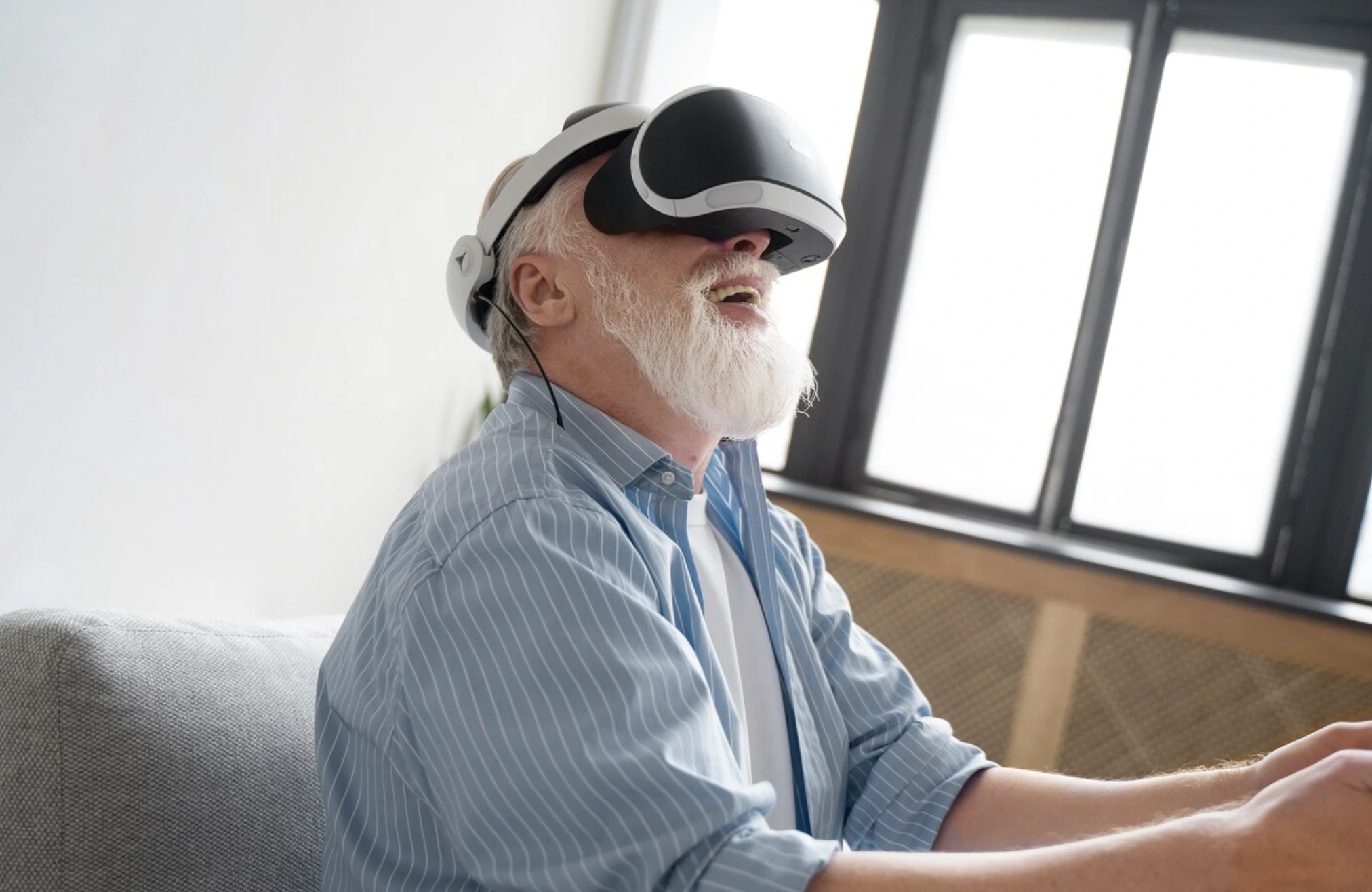
Image by Freepik
Cogniclear VR: Immersive Tool Aims To Enhance Early Detection Of Cognitive Decline
In a Rush? Here are the Quick Facts!
- Cogniclear VR uses virtual reality for cognitive assessments, offering immersive, data-driven evaluations.
- It includes 14 exercises across eight cognitive domains to simulate real-life challenges.
- Concerns exist over VR’s ability to measure real-world functioning and support dementia diagnosis.
Virtuleap has introduced Cogniclear VR, a virtual reality-based tool designed to improve the assessment and monitoring of cognitive impairments.
As announced on Monday by EIN, this tool aims to address the limitations of traditional cognitive screening tests like the MMSE and MoCA, which may overlook early signs of cognitive decline.
Unlike conventional methods, Cogniclear VR immerses users in virtual environments to evaluate cognitive function. It includes 14 exercises across eight cognitive domains, such as memory, attention, problem-solving, and motor control, simulating everyday challenges, said EIN.
These exercises provide healthcare providers with data-driven reports that aim to reduce the subjectivity often associated with traditional assessments. The tool’s immersive experience enables clinicians to track cognitive changes over time, potentially allowing for earlier interventions, noted EIN.
This could be particularly beneficial for individuals requiring ongoing care to maintain their quality of life, according to EIN.
Albert “Skip” Rizzo, PhD, Director of Medical Virtual Reality at USC’s Institute for Creative Technologies, emphasized the tool’s potential: “They have developed high-fidelity VR simulations for cognitive testing and training that are scientifically informed, reasonably priced, and engaging for users.”
Cogniclear VR also integrates with Virtuleap’s Enhance VR, a cognitive training library that includes exercises targeting seven key cognitive abilities.
These exercises have shown effectiveness in various clinical contexts, including studies on young adults with ADHD, and individuals with intellectual and developmental disabilities, as reported by EIN.
Together, Cogniclear VR and Enhance VR provide a comprehensive approach to cognitive health, offering both assessment and continuous training, said EIN.
Rizzo added, “Virtuleap offers cognitive training and evaluation activities that immerse users in rehabilitative exercises, driving cognitive activation while a backend system quantifies performance and adjusts challenge levels,” as reported by XR Today.
However, it is important to acknowledge the limitations of VR-based cognitive testing. Research suggests these assessments do not directly measure patients’ real-world functioning, highlighting the need for new outcome measures that more accurately capture cognitive abilities in everyday scenarios.
The Conversation, which conducted a research on a VR tool for brain function assessment, noted that while early results suggest this tool may be a promising approach, it should not be seen as a complete substitute for dementia diagnosis.
Concerns have also been raised regarding the implementation of VR in clinical settings, including practical challenges such as time and space constraints for assessments and the tool’s accessibility for individuals with limited technological skills.
Furthermore, a study on mild cognitive impairment —an important marker as a precursor to dementia—highlighted the limitations of neuropsychological tests like the MoCA for large-scale screening.
To address this, researchers introduced the VR Eye-tracking Cognitive Assessment (VECA), which combines eye-tracking, machine learning, and VR for scalable, non-invasive cognitive screening.
While VECA shows promise, the researchers point out that challenges remain in data interpretation, user acceptance, and generalizability across research centers.
The researchers suggest that future research should focus on improving participant feedback, cross-center validation, and data accuracy to enhance its applicability and reliability.


 Previous Story
Previous Story

 Latest articles
Latest articles 


Leave a Comment
Cancel